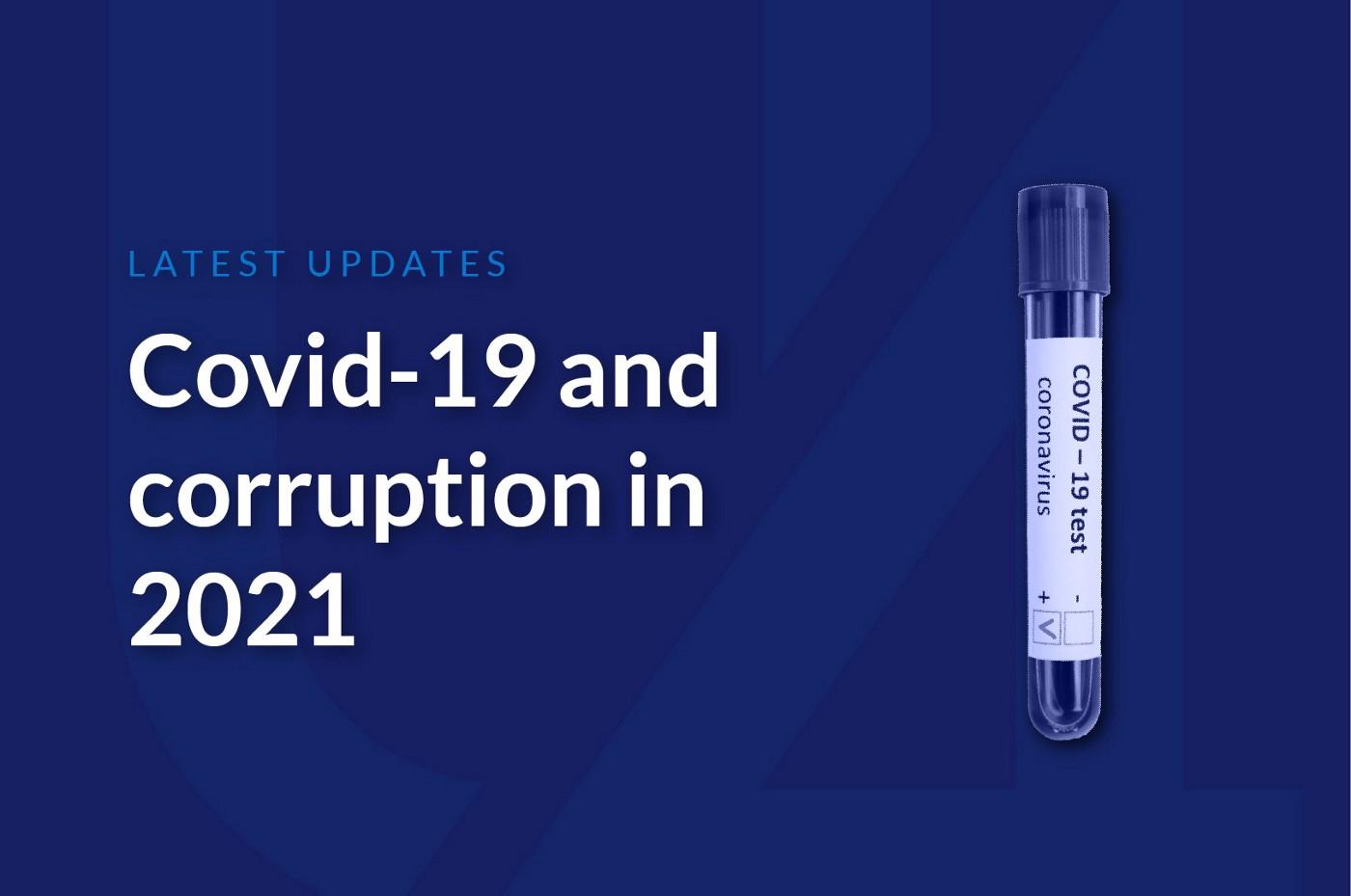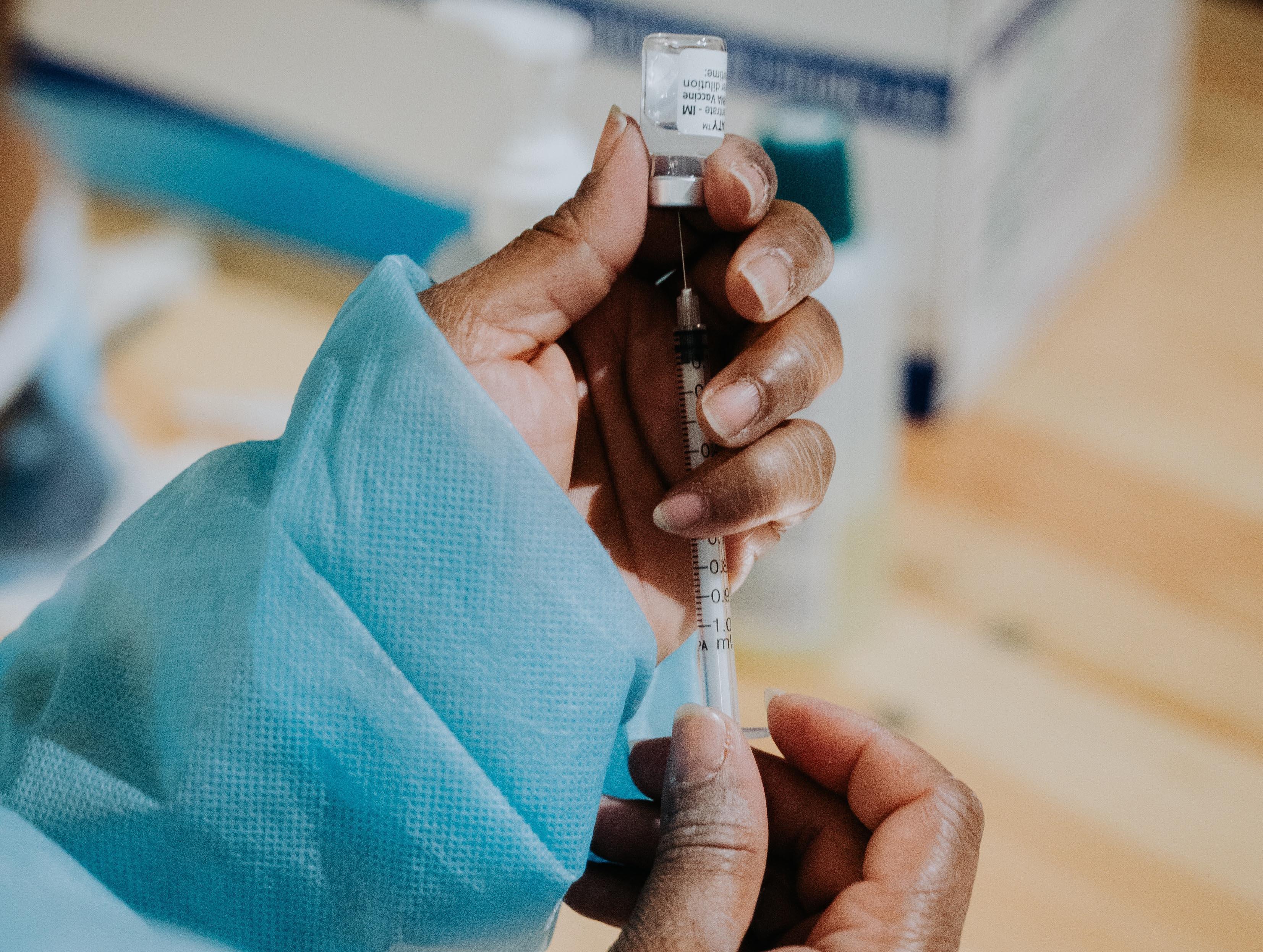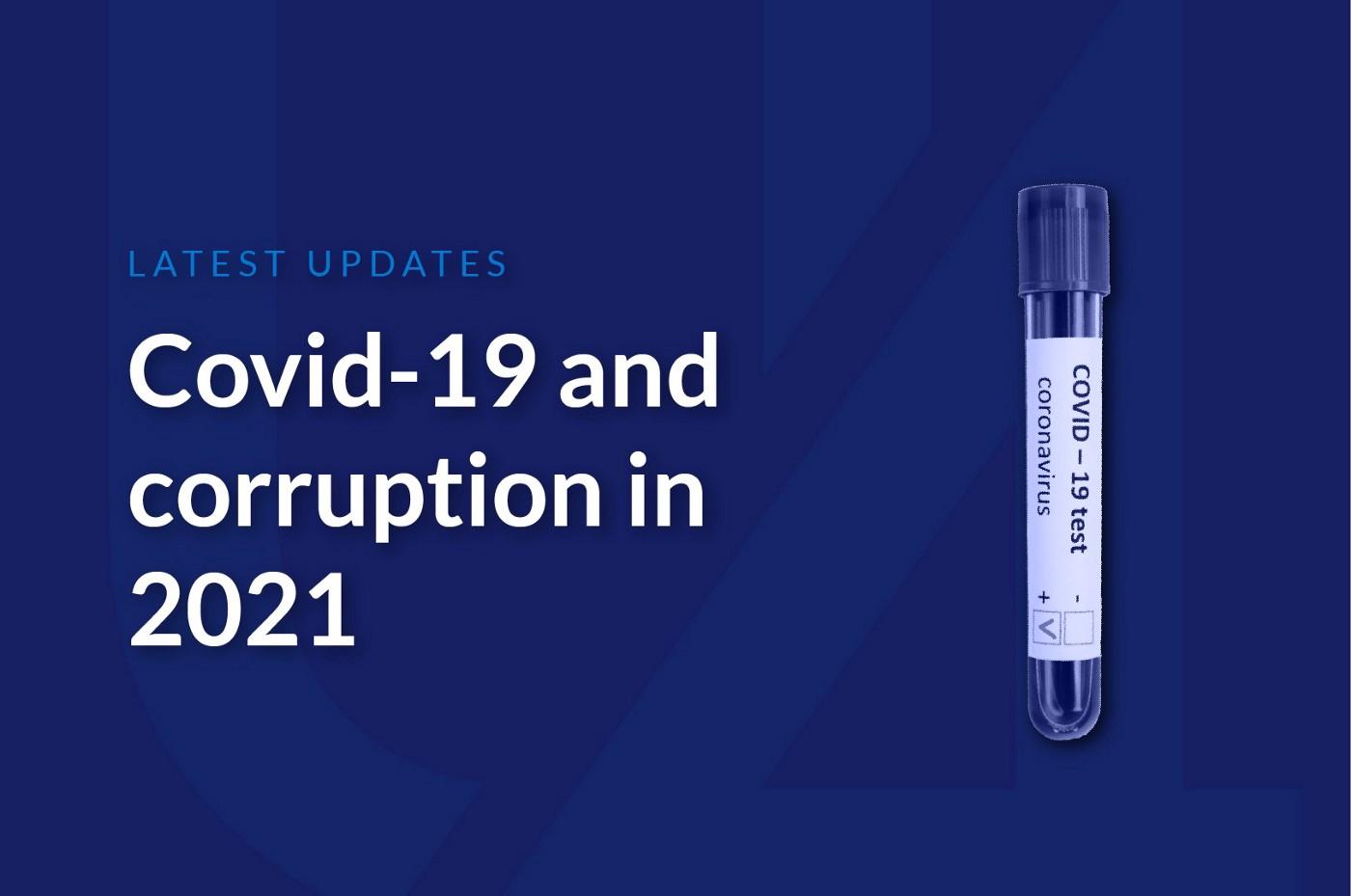Blog
Covid-19 corruption in 2021: the pandemic rages on

Today, 9 December 2021, marks the second Anti-Corruption Day during the pandemic. Let’s reflect on how corruption has contributed to prolonging this health crisis.
2021 is ending with a grim state of affairs: more than 262 million cases, 5.2 million deaths, and a new variant of concern, Omicron. We have also administered around 8.2 billion Covid vaccine doses worldwide, but only 5.8% of them have gone to low-income countries. And almost two years into the pandemic, only 1 in 4 African health workers are fully vaccinated against Covid-19, leaving most of their health workforce unprotected.
Many have pointed to the inequitable distribution of Covid-19 vaccines, faltering national vaccination campaigns and vaccine hesitancy as the causes for this protracted health crisis. In late November, world leaders met at the World Health Assembly to develop an instrument to govern a global pandemic response and secure a more equitable distribution of diagnostic tests, drugs and vaccines.
Corruption is usually overlooked in these discussions, despite its role in enabling the pandemic to drag on. Corruption has co-opted key resources destined to respond to the pandemic, weakened health systems and national vaccination campaigns, damaged public trust, and contributed to the inequitable distribution of vaccines.
Our Covid-update blog posts this year have highlighted several corruption trends across the world. These include:
- Growing black markets for falsified Covid-19 vaccines and vaccination cards.
- Widespread corruption in Covid-19 procurement and contracting.
- Data manipulation and lack of transparency in clinical trials of Covid-19 vaccines and other treatments.
- Theft and embezzlement of Covid-19 funds, Covid-19 vaccine doses, and medical equipment.
- Data manipulation related to Covid-19 cases and deaths.
- Grand corruption and state capture, which – together with slow investigation processes – have cemented a culture of impunity.
- Petty corruption, such as bribes and other forms of profiteering, at the point of healthcare service delivery.
We also found that in Sub-Saharan Africa, previous corruption in the health sector and deliberate misinformation campaigns have eroded public trust in medical interventions, contributing to vaccine hesitancy and low vaccine uptake. This may apply to other regions as well.
Our latest media analysis from October until now reconfirms that the same corruption patterns continue to pop up worldwide. Here are some of the most notorious cases:
- In Kenya, investigative journalists found a network of cartels, mostly made up of corrupt officials at the Ministry of Health, selling donated Covid-19 vaccines for as much as 20,000 Kenyan shillings (approximately US$ 177).
- Almost two-thirds of contracts related to the purchase of personal protective equipment (PPE) in the UK were awarded to firms part of a special “VIP lane”, without following due diligence.
- Investigative journalists have shed light on rampant impunity in South Africa. The Daily Maverick Citizen found that 11 companies were convicted and sentenced for not declaring taxes on personal protective equipment they had supplied to government departments. However, as of October 2021, none of them were barred from doing business with the government.
- Large amounts of Covid-19 funds kept being embezzled in several countries, including Afghanistan (2.6 million Afghani – approximately US$ 27,000), and the Democratic Republic of Congo US$ 357 million of Covid funding awarded by the IMF were not publicly accounted for).
- Moderna and Pfizer have been accused of profiteering from the pandemic. An investigation found that the secrecy in contracts allowed Pfizer to sell its vaccines at much higher prices than its manufacturing costs: GBP 0.76 per shot. As for Moderna, the company has been accused of selling its vaccines almost exclusively to wealthy nations, keeping poorer countries waiting and paying much higher prices.
- A previous researcher part of Pfizer’s clinical trials in Texas blew the whistle and reported to BMJ that 'the company falsified data, unblinded patients, employed inadequately trained vaccinators, and was slow to follow up on adverse events reported in Pfizer’s pivotal phase III trial.'
- Fake vaccines continued to proliferate. In November, falsified versions of the AstraZeneca vaccine were found in the Islamic Republic of Iran.
- A new study found that Covid-19 deaths in Somalia were at least 30 times higher than what the government reported in early 2020.
- While in Lesotho corrupt health workers were selling Covid-19 vaccination certificates for less than GBP 20, in Australia unscrupulous patients were offering thousands of dollars in bribes to GPs in exchange for fake Covid-19 vaccination certificates.
- There is growing vaccine hesitancy in parts of Africa and Southeast Asia, even in the face of the rapid spread of Omicron. Deep distrust, the legacy of Western exploitation and medical abuses during and after colonialism have contributed to this. Endemic corruption has also undermined public confidence in institutions.
Additionally, one of our most recent U4 Issues: Global access to Covid-19 vaccines: Lifting the veil of opacity, found that lack of transparency along the vaccine value chain – in research and development, manufacturing, distribution, and contracting – is largely to blame for the unequal distribution of Covid-19 vaccines.
Covid corruption has had a profound impact on the world’s pandemic response and recovery. It has weakened health systems, devoured key resources, and contributed to a longer pandemic than we had hoped for. The world needs to give proper attention and remedial action to transparency, accountability, and integrity issues, so we don’t fall into the same corruption traps next year.
Disclaimer
All views in this text are the author(s)’, and may differ from the U4 partner agencies’ policies.
This work is licenced under a Creative Commons Attribution-NonCommercial-NoDerivatives 4.0 International licence (CC BY-NC-ND 4.0)

